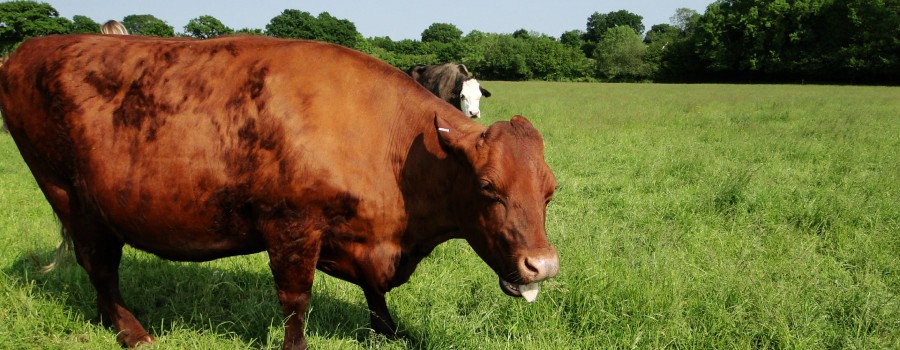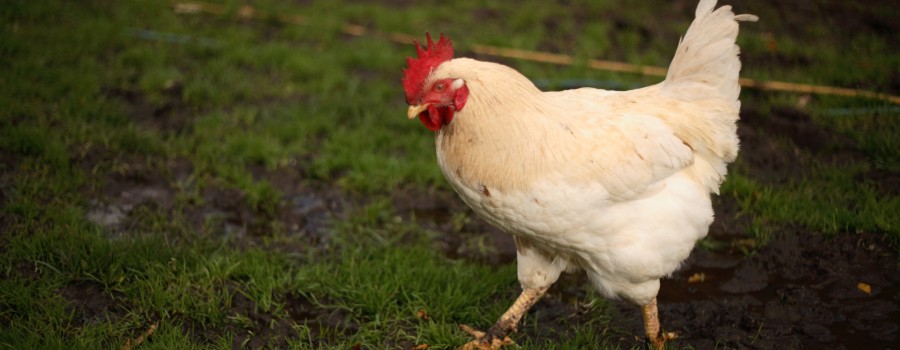There are several reasons as to why someone may choose to become vegan – with preventing animal exploitation being one of the main motives.
Being vegan reduces the demand for animal products and shows compassion for other sentient beings. We uncover the truth about the various farmed animal industries below.
The truth about the dairy industry

Calves are generally taken away from their mothers within 24 hours of birth, causing immense distress for both mother and calf. Both have been seen to cry out for each other as they are separated. The mother has to endure this happening 4 or 5 times before she is considered ‘spent’.
Males, who are of little use to the dairy industry, are either killed shortly after birth or sent away to be reared for veal. A 2018 investigation estimated that 95,000 male calves were being killed every year within a few days of birth. Meanwhile females follow the fate of their mothers – milked continually throughout their lives.
The unnaturally high production of milk leaves dairy cows susceptible to mastitis, a painful udder infection. In severe cases of the infection, the cows are killed. This happens in great numbers, as mastitis is the most common cause for 'premature culling' according to AHDB Dairy. Meanwhile, many suffer lameness due to their unnatural surroundings. They are generally kept indoors for at least half of the year.
Life expectancy of a dairy cow is less than a quarter of its natural lifespan; dairy cows are considered spent between 3-4 years at which age they are slaughtered. If allowed to exist free of exploitation and slaughter, however, dairy cows can live 25 years or more.
Farms exist for profit, not to make sure the wants and needs of cattle are met. Even when welfare standards are higher than normal, cows and calves still have to endure eventual separation, are used and not respected, and they all die long before their time. Veganism is about neither using nor abusing non-humans, who all have a right to life and freedom. These animals cannot consent to being raised for milk and meat. Whatever conditions we keep them in, farming them is always an abuse of power.
Start your vegan journey today by downloading our VeGuide app. You can also join The Vegan Society by completing our quick and simple online form. As a registered charity we rely on our members, and we are so grateful to everyone who supports us. For just £2 a month, your membership will go towards helping us to spread the word of veganism and create a world where animals are free to exist in their own right. In return you’ll receive access to over one hundred vegan discounts, our quarterly magazine, exclusive competitions and more!
The truth about the egg industry
Regardless as to whether they’re in free range or caged farming systems, hens lead an existence of pain and suffering throughout their shortened lives.  Free range
Free range
There is a common misconception that free range eggs involve hens roaming outside, happy and free. Yet the reality is that free range hens are actually kept in vast sheds with potentially thousands of other birds, few of which ever see daylight.
Free range might mean cage-free, but EU legislation stipulates that as many as nine birds can occupy one square metre of floor space. Provided the bird-to-floor ratio is met, these laws do not stop chickens being stacked tier upon tier. They must be given some kind of outside access, but in such confined spaces only few birds are ever able to actually make it outside.
Previously, standard free range practice was to cut off a large portion of each hen’s beak with a hot blade without the use of painkillers so that hens in close confinement don’t peck each other. However, the use of a hot blade became illegal in the UK in 2011 and was instead replaced with a specialised infrared light. There are ongoing conversations around banning beak trimming altogether, although a full ban isn't expected until at least 2050.
A hen’s beak is very sensitive, akin to a human’s fingertips. Research suggests that beak trimming leads to both acute and chronic pain with symptoms similar to those of human amputees who suffer from phantom limb pain.
All commercial hens are sent to slaughter after around one year’s egg production despite having a natural life span of seven years. They mostly end up in processed meats, typically pet food. ‘Breeders’, the hens required to produce the next generations of egg-layers, are similarly slaughtered after one year due to exhaustion.
Battery and ‘enriched’ cages
Battery farms consist of huge, windowless sheds housing thousands of hens who are crammed four or five at a time into small wire cages stacked on top of each other in rows. Each hen may have as little as 430cm² of space: too small to spread even one wing. Battery farms exist across the world, and the majority of egg-laying hens in the US are battery, despite bans in some states.
In the EU, barren battery cages are banned in favour of ‘enriched’ cages, though these only provide 600cm² of usable space: less than an A4 size of paper.
Meanwhile, some farms have been known to break the ban and still use the older, smaller cages.
Male chicks
Whether free range or factory farmed, male chicks are of no use for egg or meat production, and are killed almost immediately after hatching. They are either thrown into an industrial grinder (‘macerator’) while still alive or gassed to death, the preferred method in the UK.
The effect on the animals
Chickens are intelligent, inquisitive animals, but under farmed conditions they are unable to perform any of their natural behaviours like dust-bathing or building a nest, feeding or foraging. The confined, packed-out conditions have serious implications for their physical and mental health – broken bones, osteoporosis and malignant tumours are common, as are stress-induced abnormal behaviours. Lack of exercise also causes some hens’ bodies to degenerate.
Even in the ultimately rare small scale production systems, hens are still treated as commodities, with no say over the use of their bodies. Keeping rescued egg-laying hens in your backyard is one way to help these animals, but taking their eggs for your own consumption is not. Some hens mourn the loss of their eggs, while many eat their own unfertilised eggs as a way to take back the nutrients contained within them. Even if this was not the case, what is important is that other animals are not ours to use in any way. Go vegan and fight against exploitation!
The truth about the honey industry
Honey is very commonly mistaken as vegan friendly, however there are many ethical reasons as to why honey should not be consumed as a vegan. Find out more about the honey industry to learn about the unethical practices, environmental effects, and vegan alternatives.

